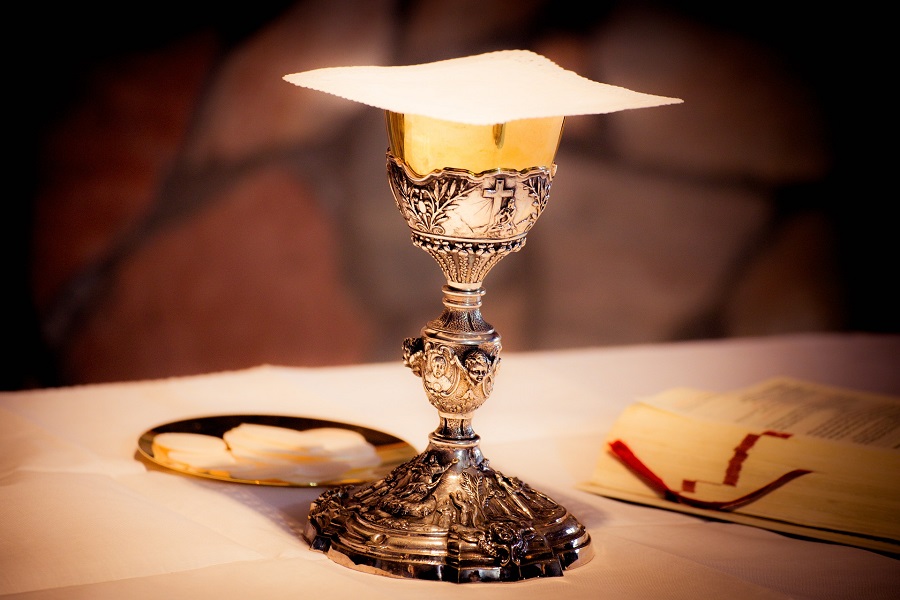
The Doctrine of Concomitance
01-12-2020Pastor's LetterFr. John EhrichDear Parishioners,
As you know, one of the distinctively Catholic beliefs is that the Eucharist is truly the Body and Blood of Jesus Christ. Jesus, Himself, is truly and fully present whenever we receive either the consecrated Host or from the cup. This has been the belief of the Church since the time of the Apostles.
However, it is not uncommon for people to speak errantly about the Eucharist. Far too often I have heard people talk about receiving the "wine" or, receiving the "bread." We need to remember that we never receive wine at Communion, just like we never receive bread. We always receive the Body and Blood of Jesus. This is, in fact, the point. When the gifts are brought forward they are merely bread and wine. But by virtue of the prayer of the priest and the action of God, they become the Real Presence of Christ. They are no longer bread and wine.
So when we speak of receiving from the cup, let us remember to say that we received the "Blood of Christ." When we receive the host, let us remember to say that we received the "Body of Christ." Technically the full presence of Christ is fully and completely in either the Precious Blood or the consecrated host. This teaching of the Church is called the "Doctrine of Concomitance." What this means is that if a person receives only from one "species" of the Eucharist, from the cup or the host, they receive the full Christ. Receiving from the cup and the host does not mean a fuller reality at all. There is no "more" Christ received because we have both species at our Masses. The value of both species at Mass is that of the sign it conveys.
In fact, the Church requires a number of conditions be present if a priest is going to allow both species to be communicated at Mass. One of these conditions is that people truly understand the Doctrine of Concomitance. Essentially, we just need remember that what is in the cup is the full Jesus and what is in the host is the full Jesus. Either one conveys the fullness of the Sacrament of the Holy Eucharist.
Let's also be sure to talk about the Eucharist in the proper manner. Prior to Mass it is bread and wine, after the consecration it is "Jesus," the "Real Presence," the "Body and Blood of Jesus."
God's blessings,
Fr. John Ehrich